
16 Jan, 2015
First Islamic Tourism seminar in Sabah promotes understanding, clears up misconceptions
Kota Kinabalu, Sabah – The Kuala Lumpur-based Islamic Tourism Centre organised its first seminar here between 12 – 14 January to update the travel & tourism industry of Malaysia’s second largest state with ways to better understand and attract one of the world’s most promising niche-market customer segments, the Muslim traveller.
In addition to a strong contingent from Malaysia, the 63 participants included delegates from Japan, the Philippines, Brunei and Indonesia. The two-day programme featured briefings on the size and importance of the Islamic tourism market, cultural and lifestyle requirements of Muslim travellers, and the policy and product adjustments being made to cater to their cultural, dietary and religious lifestyles.
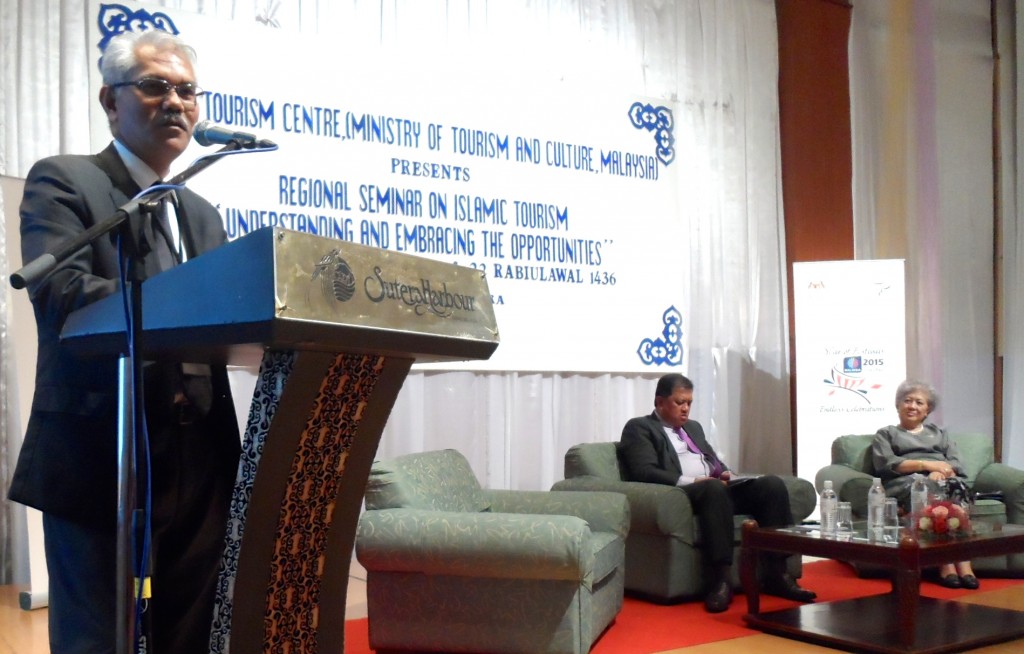 Mr. Zulkifly Mohammed Said, Director General, Islamic Tourism Centre, addressing the seminar |
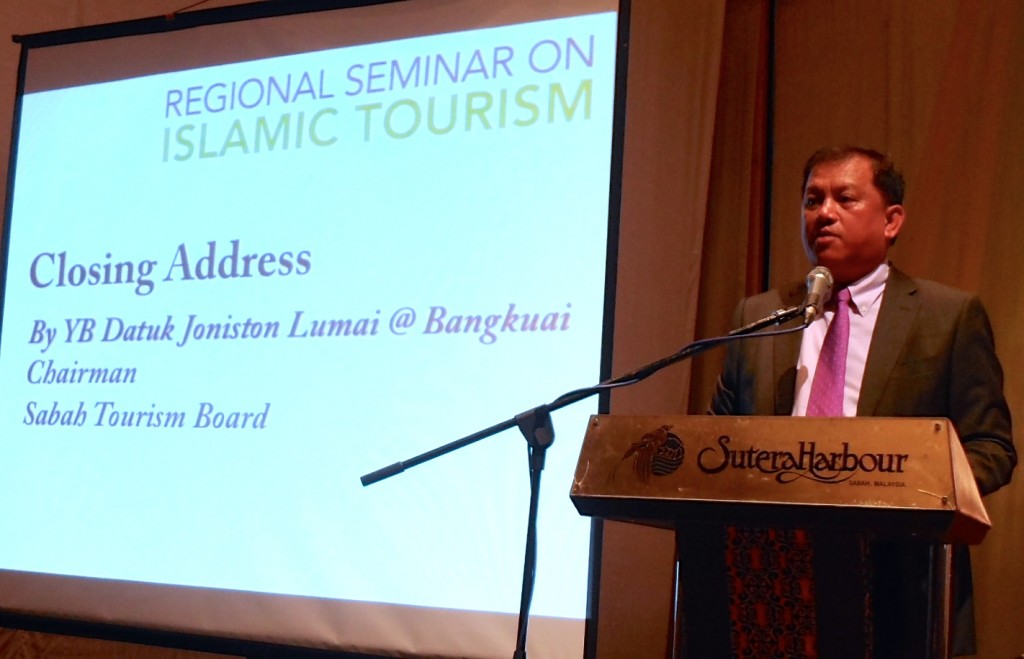 Datuk Joniston Lumai @Bangkuai, Chairman, Sabah Tourism Board |
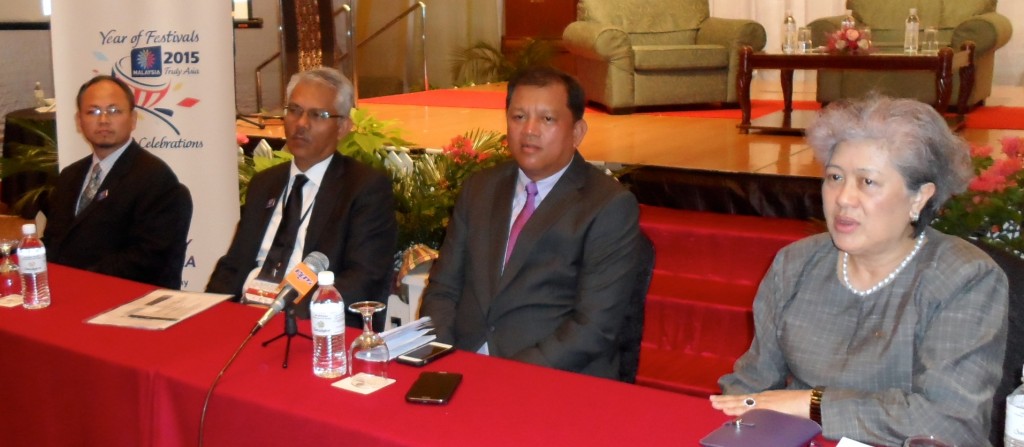 Addressing the Press conference, from left: Mr. Nirwan Noh, the ITC’s Director of Research and Training, Mr Zulkifly, Datuk Joniston and Datuk Irene Benggon Charuruks, General Manager, Sabah Tourism Board. |
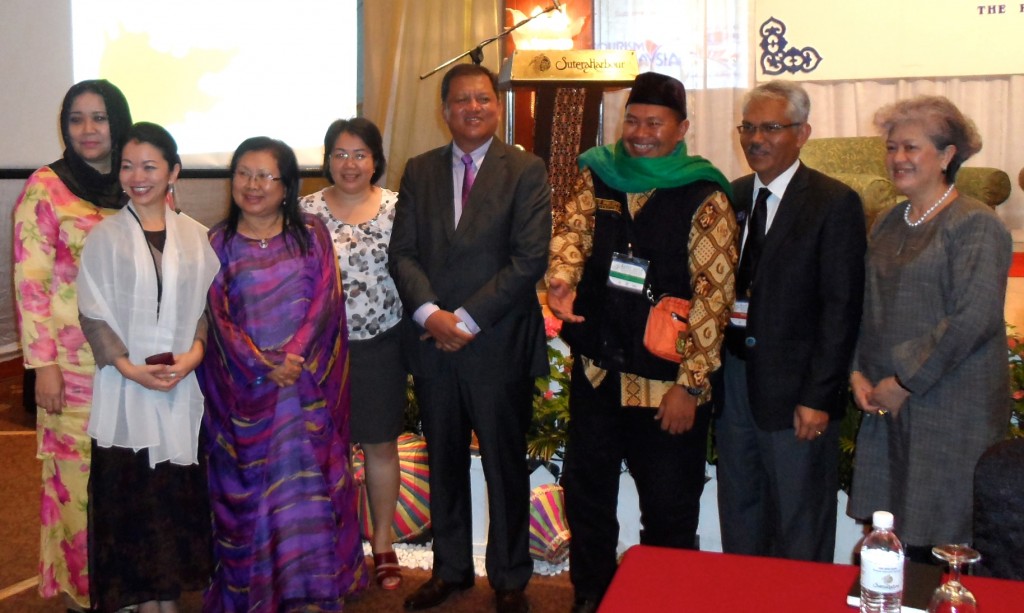 Sabah Tourism Board and ITC executives with some of the delegates at the seminar. |
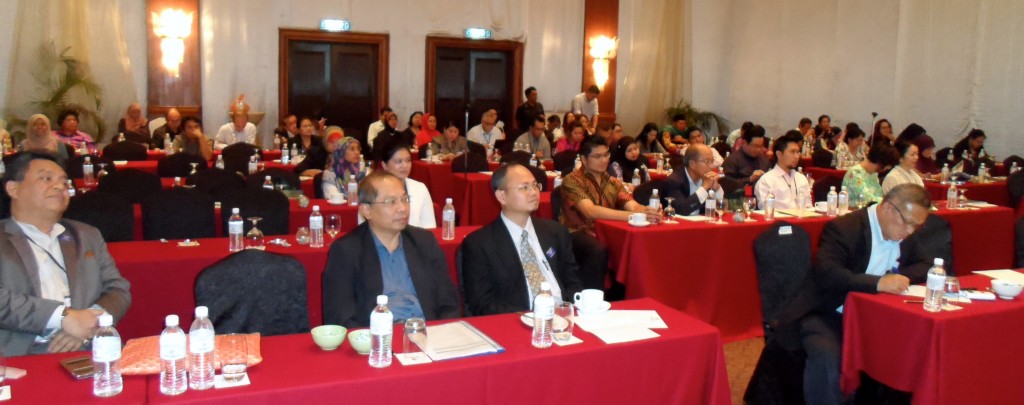 The strong turnout at the seminar |
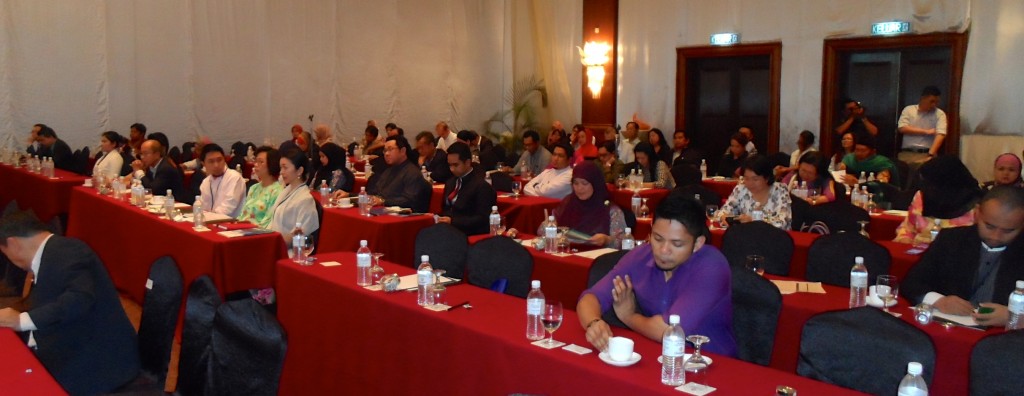 The strong turnout at the seminar |
 ========== |
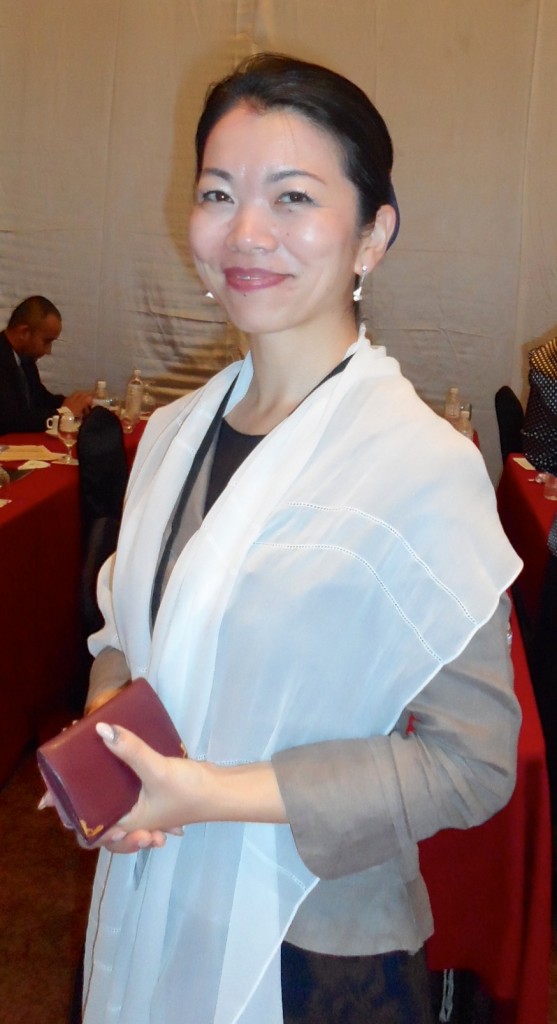 Ms Naoko Tahara, Manager of the Okayama branch of the Halal Japan Business Association |
 Ms Mariam Obispo of the Philippines Department of Tourism |
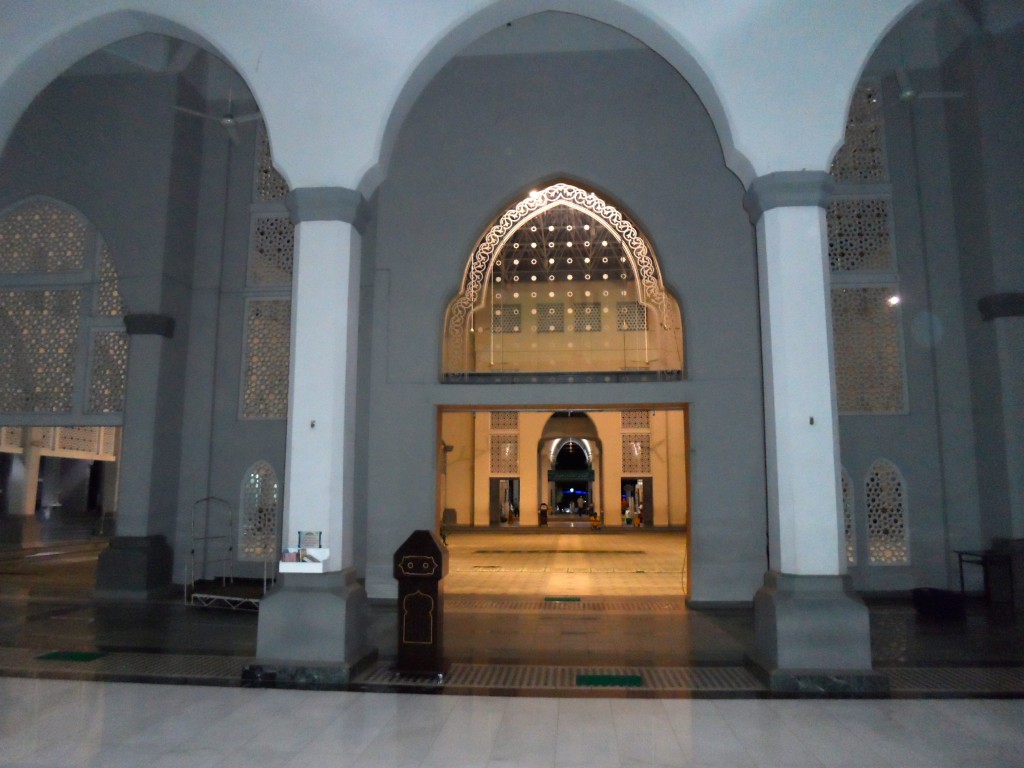 Inside the Floating Mosque, Kota Kinabalu |
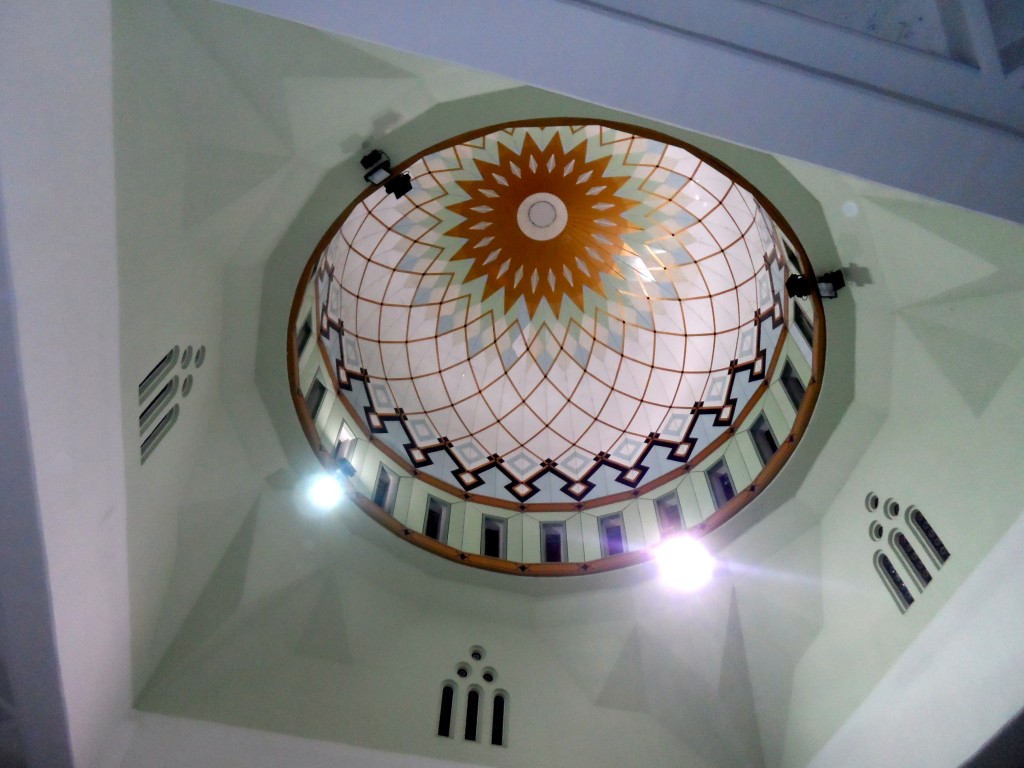 The beautiful dome of the Floating Mosque, Kota Kinabalu |
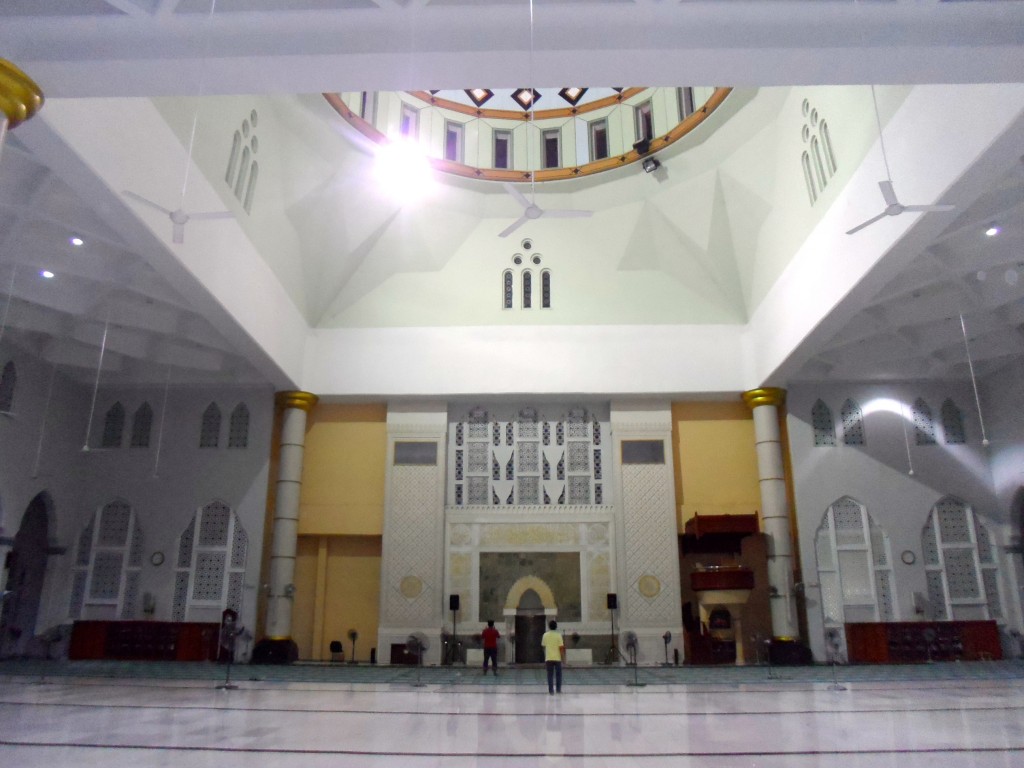 Inside the Floating Mosque, Kota Kinabalu |
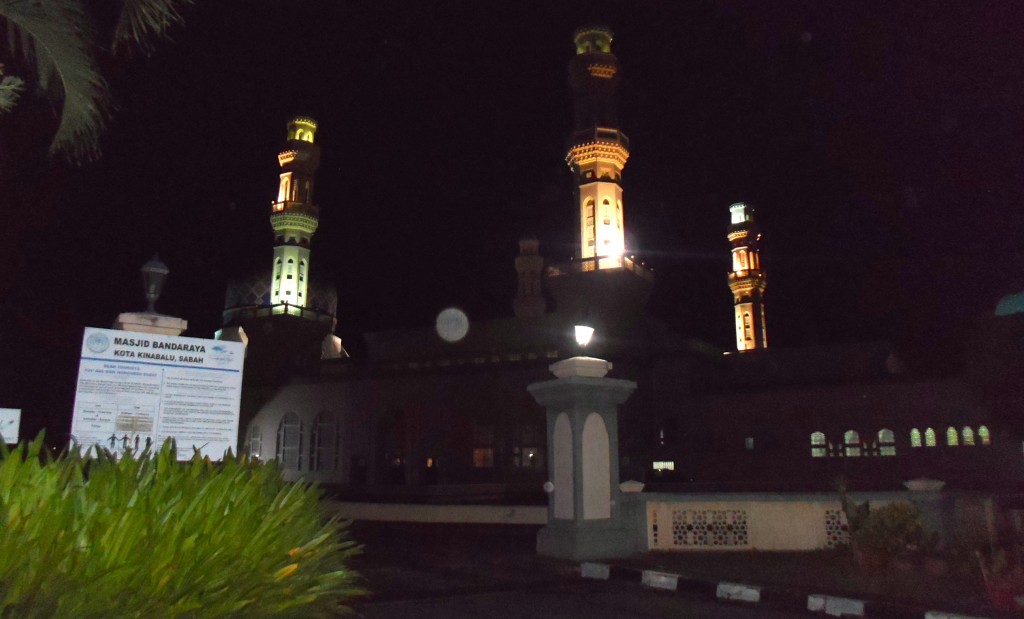 The Floating Mosque, Kota Kinabalu, by night |
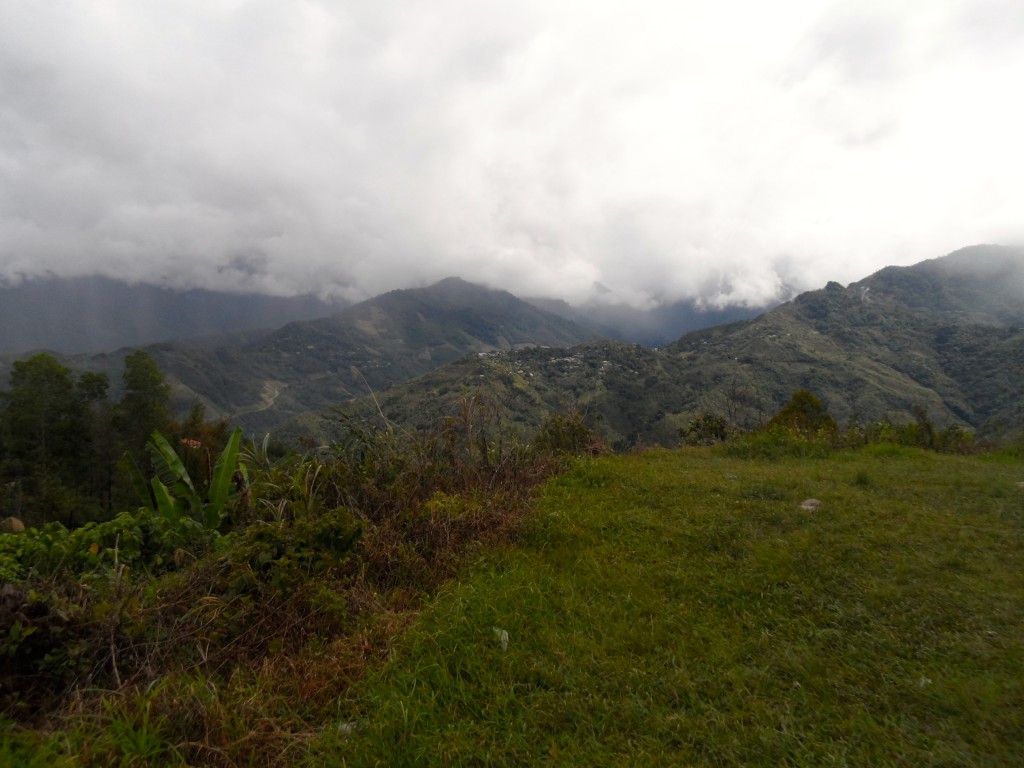 The magnificent scenery on the way up to the Mount Kinabalu National Park, Malaysia’s first World Heritage site. |
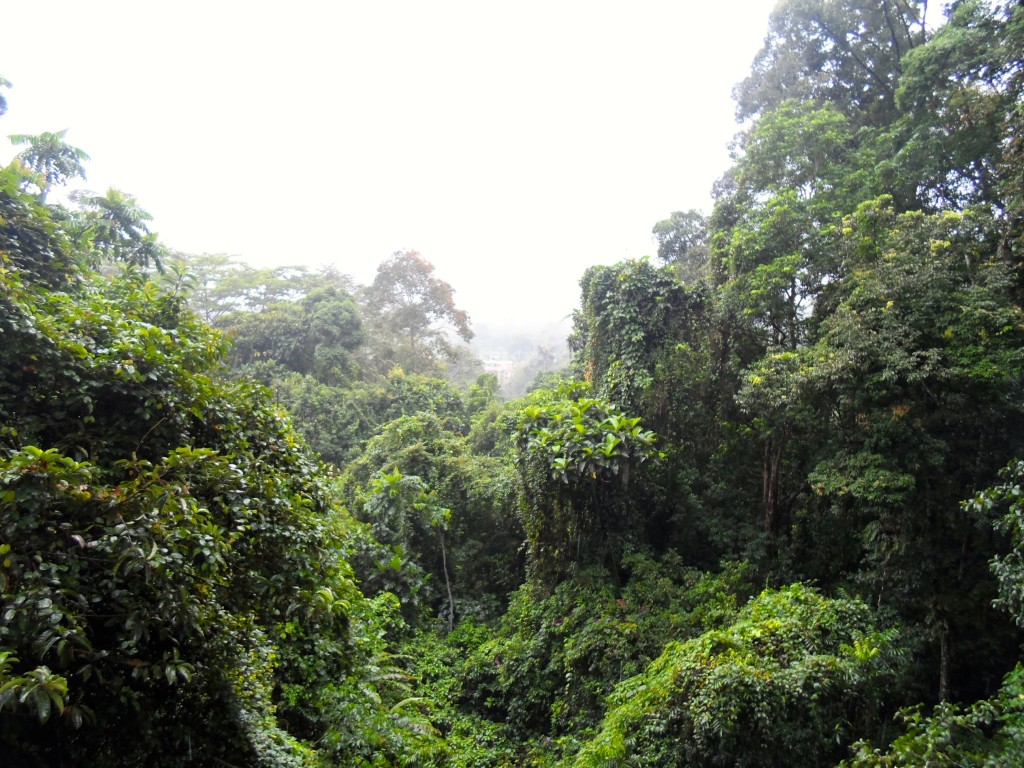 The spectacular flora and fauna of the Mount Kinabalu National Park, Malaysia’s first World Heritage site. |
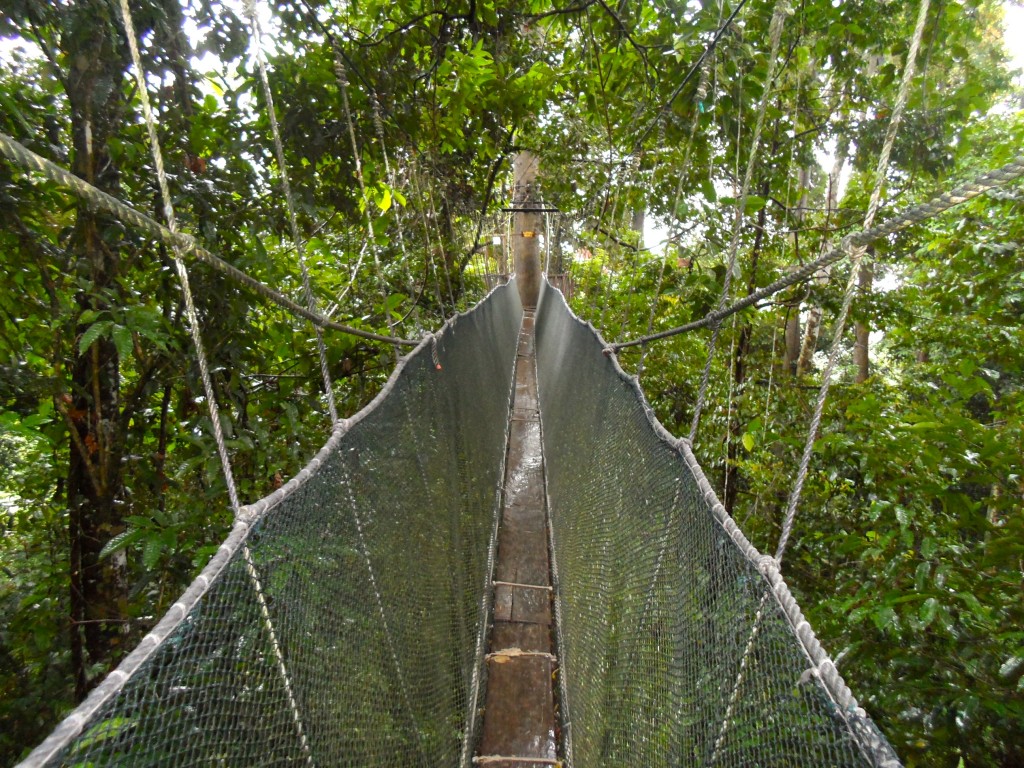 The walking canopy inside Mount Kinabalu National Park, Malaysia’s first World Heritage site. |
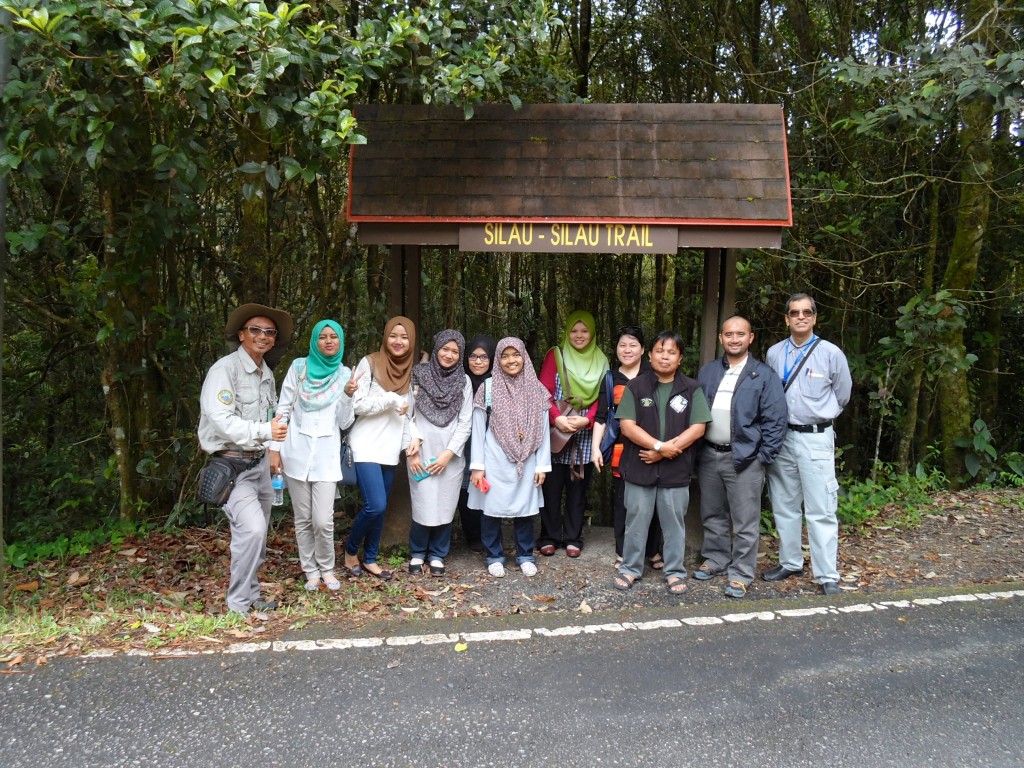 Delegates were taken for a walk through this trail designed specifically for time-poor city-slickers in the Mount Kinabalu National Park, |
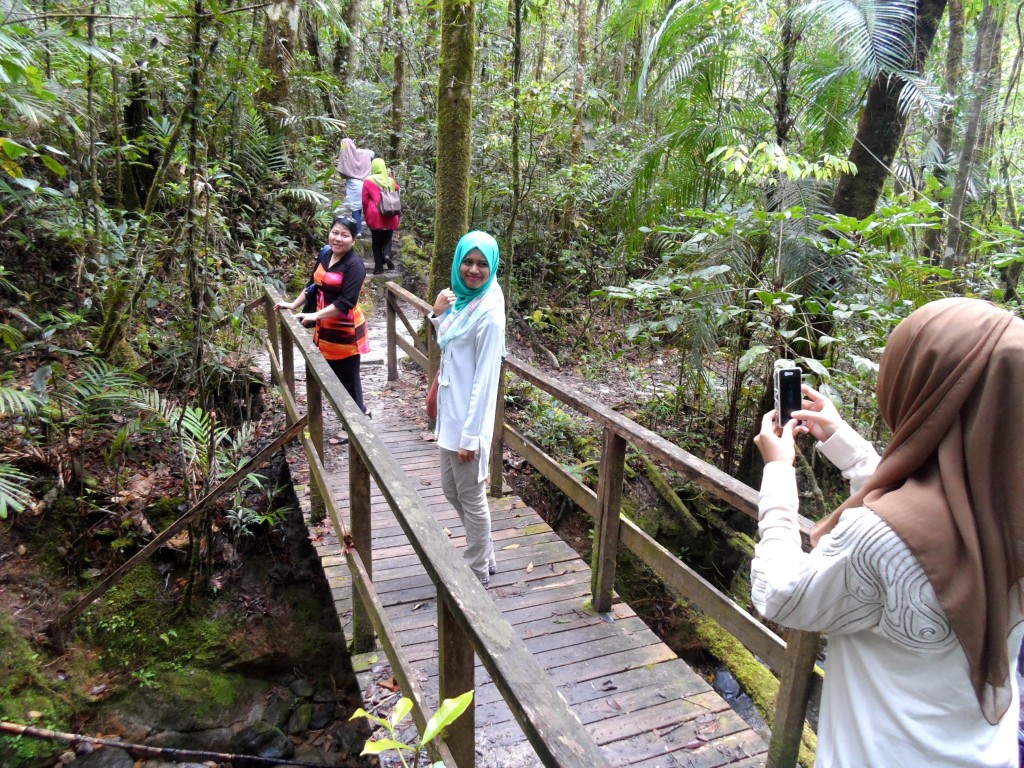 The leisurely walk along the Silau-Silau trail |
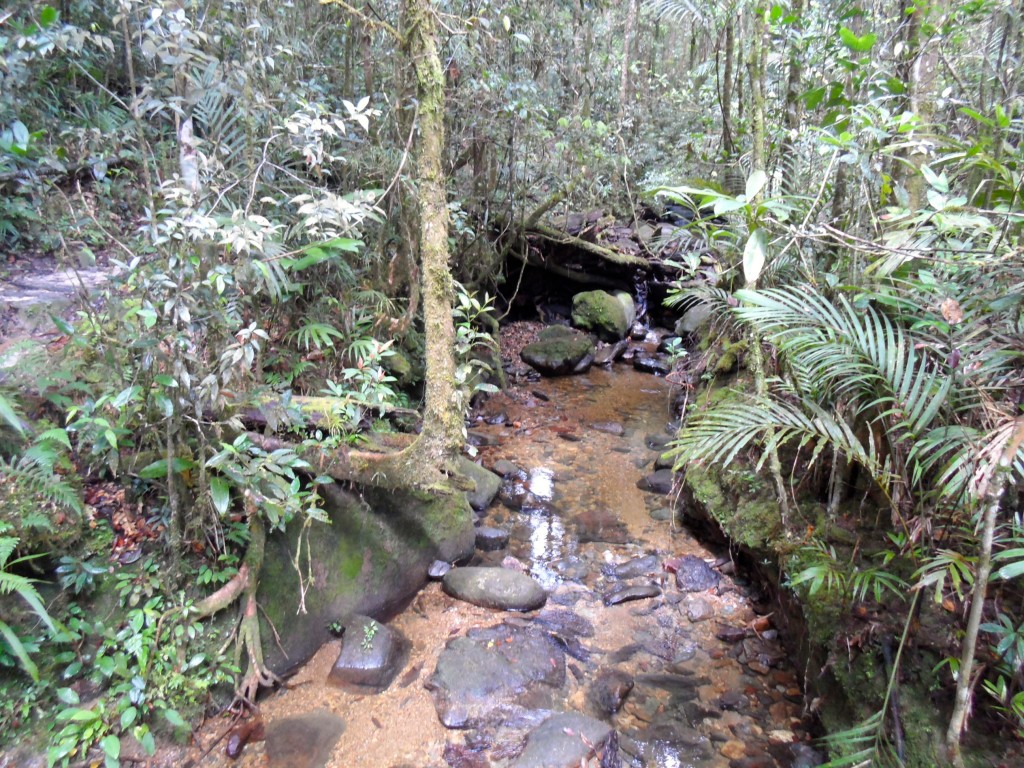 Crystal-clear water in the springs of the Mount Kinabalu National Park. |
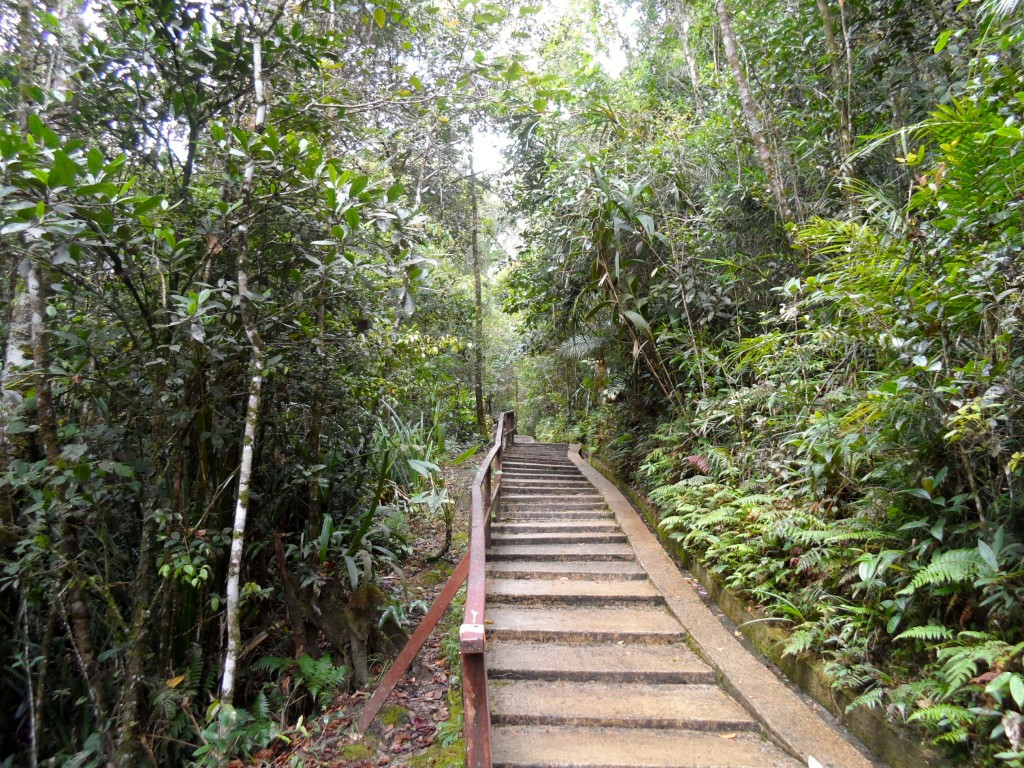 More easy steps to walk through the park. |
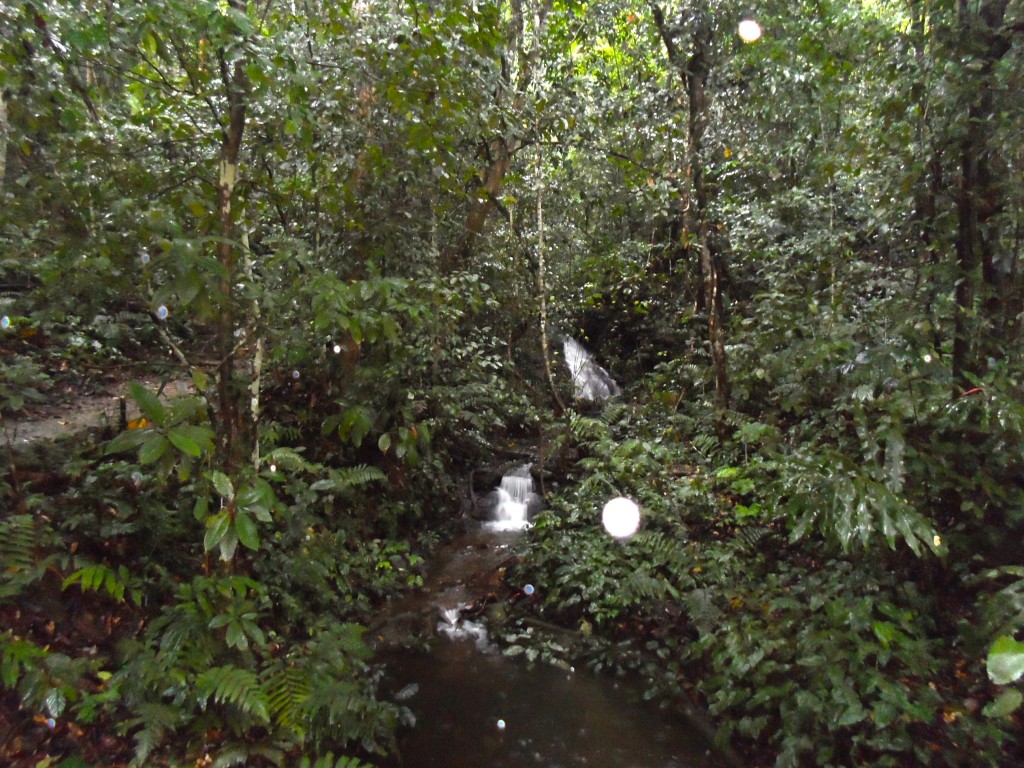 =========== |
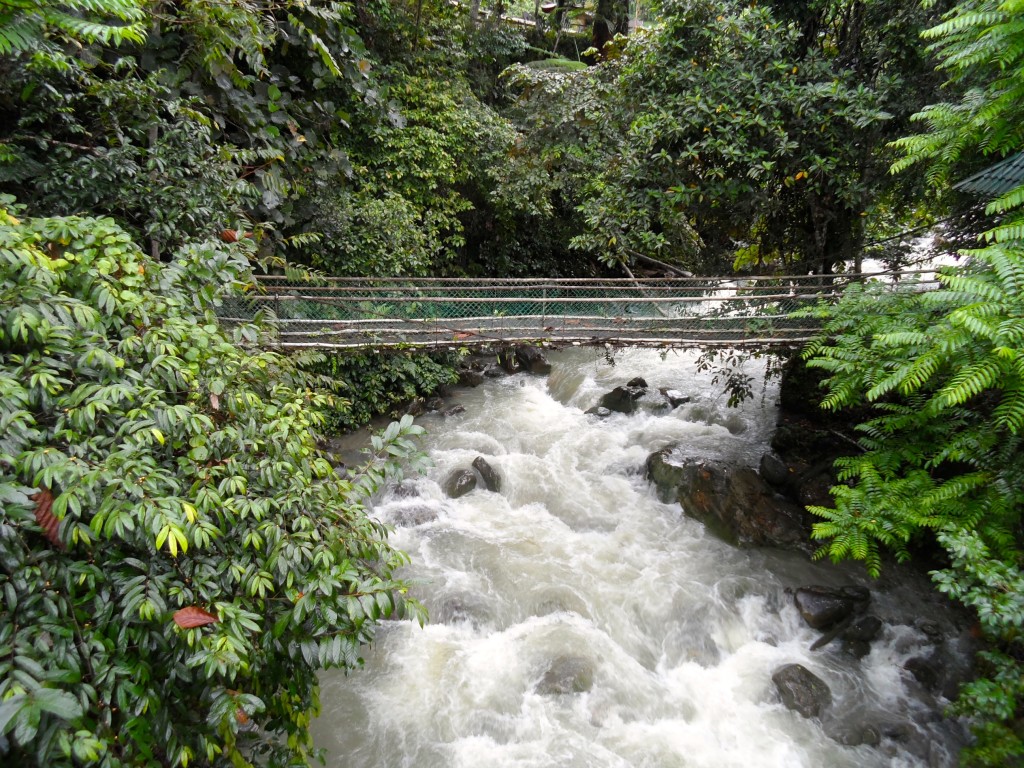 ======== |
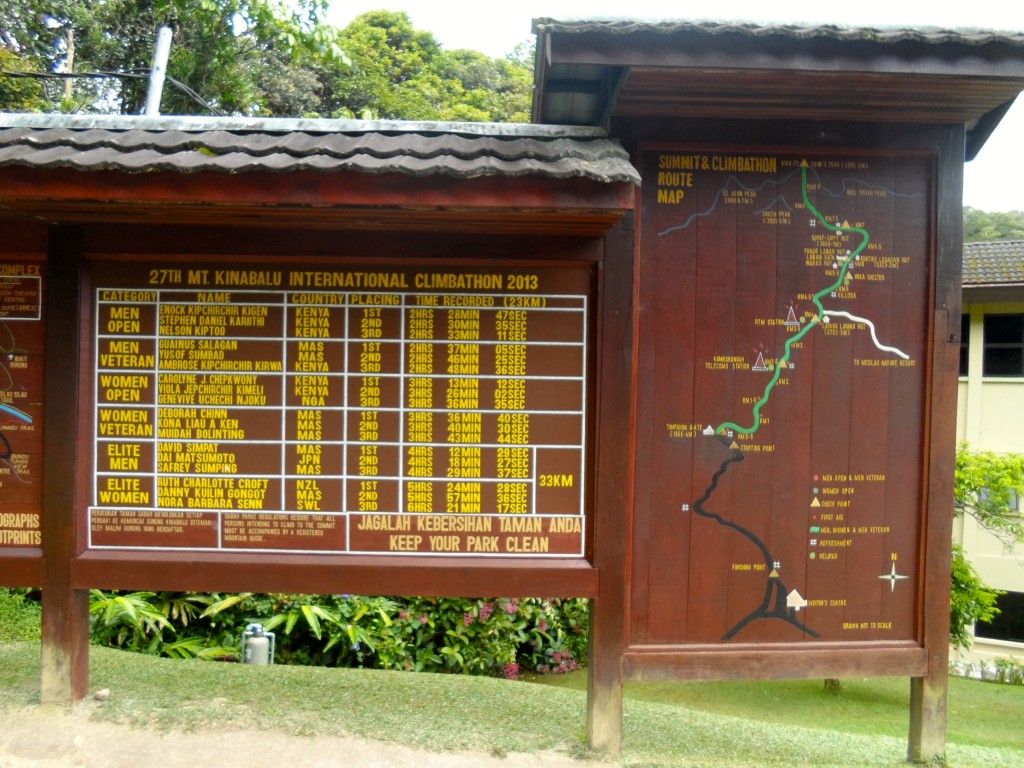 A map showing the longer trail to the peak of Mount Kinabalu, home to an annual international climbathon. |
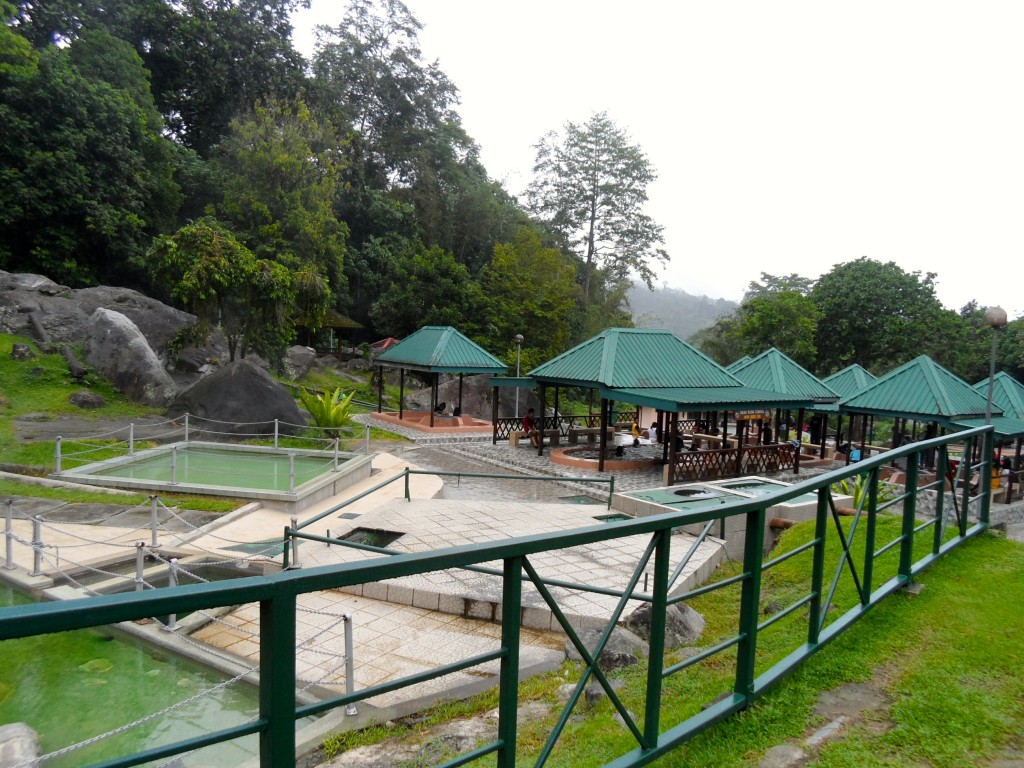 The Poring Hot Springs |
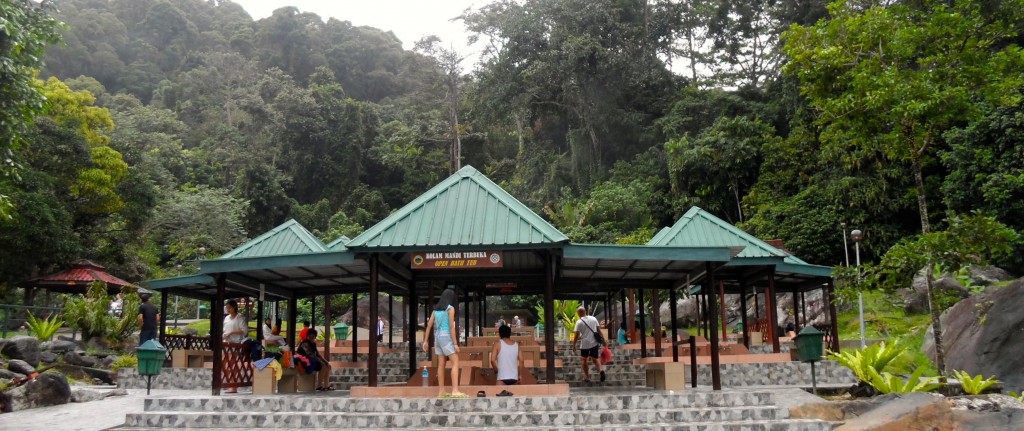 The Poring Hot Springs |
The Regional Seminar on Islamic Tourism (ReSIT) was the first event organised by the ITC this year, and the first ever held outside of Kuala Lumpur. It met a broad cross-section of strategic goals: To promote domestic travel within Malaysia as well as intra-ASEAN and intra-Islamic travel. It also helped meet the regional integration objectives of building a single ASEAN identity, as outlined in the ASEAN Socio-Cultural blueprint, and the sub-regional development strategies of the BIMP-EAGA (Brunei, Indonesia, Malaysia, Philippines East Asian Growth Area) with Kota Kinabalu at its centre.
Sabah is home to the highest mountain peak in ASEAN, Mount Kinabalu, located in a huge national park, a UNESCO World Heritage Site. Its promotional video quotes a National Geographic report as saying that 10 sq kms of the heritage reserve has more flora and fauna than all of Europe and North America combined. The state’s primary income is oil and gas but it is keen to diversify this.
In introducing the seminar, Mr. Zulkifly Mohammed Said, Director General, Islamic Tourism Centre, noted that the global population of 1.6 billion Muslims stretches from Mindanao to Morocco and across the Atlantic to Guyana. Of this population, 1.1 billion are within the Organisation of Islamic Cooperation countries, 240 million are in ASEAN and 20.4 million in Malaysia. He pointed out that while the largest number of Muslim visitor arrivals to Malaysia were from ASEAN, the highest spenders were from the Middle East, including Saudi Arabia, Kuwait, Oman, UAE and Iran.
Mr. Zulkifly said that the seminar is designed to share best practises and make it useful for businesses in helping them identify the huge potential for Muslim travellers worldwide. Importantly, he said, the Muslim market is not just the Middle East market; the largest Muslim populations, in fact, are in two countries where they are a minority part of the total population, China and India.
Over the course of two days, delegates heard about the concept of Halal and Tourism in Islam, trends in Islamic Tourism, best practises in development of Muslim-friendly tour packages and the importance of social media. Mr. Mohammed Arif Abdul Hamid, Deputy Director, Sabah Museum provided an update on Muslim-friendly tourism products in Sabah and Sarawak, and Ms Maebel Leong Sai Fong, Principal Assistant Secretary, Industry Development Division, Ministry of Tourism and Culture, briefed delegates on the financial assistance schemes for small & medium sized enterprises. Datuk Irene Benggon Charuruks, General Manager of the Sabah Tourism Board, attended the entire event.
It was repeatedly stressed during the seminar that the Islamic tourism market was just another lifestyle and customer niche-market no different from health & wellness, people with disabilities or gays and lesbians. If suppliers of products and services in the travel industry wish to get the Muslim business, common sense indicates that you have to cater to it. Stressed Mr. Zulkifly, “It’s not being forced on anyone (in Malaysia). It’s for individual companies to decide whether or not they want to attract this market.”
Mr. Ismail Hisham Ahmad Zambri, General Manager, PNB Darby Park Kuala Lumpur, noted that PNB, one of Malaysia’s leading asset managers overseeing funds of more than RM255 billion, was venturing into property and hospitality business locally and abroad. Its existing properties in Malaysia, PNB Darby Park, PNB Ilham Resort and Hotel Perdana, are proactively meeting the needs of Muslim customers in terms of facilities and amenities. He said that the number of Muslim guests at the PNB Darby Park Executive Suites alone had risen from 8,924 in 2013 to 12,619 in 2014.
Internally, one of the most important benefits of adopting a Sharia-compliant was in human resources, Mr. Ismail said. Opening staff meetings with a prayer and adherence to sharia rules enables more constructive discussions, problem-solving and conflict-resolution. “The shariah compliant Shura is like giving the staff the opportunity to give any insight, a good way to communicate, and avoid any conflict by practicing good manners,” he said. “The uniform application of Shariah compliant is emphasized in producing faithful workers and a professional mind-set. A Shariah compliant personality can boost customers confidence on services provided by the Muslim-friendly hotels.”
Added Mr. Mark Teh, Sales Manager of the PNB Darby Park Executive Suites, “As a hotelier, I am pleased to welcome with open arms any visitor with any good intention. As a businessman, I won’t miss a chance to give impact on my bottom line. Islamic Tourism is just a term to represent a lifestyle. It is just a matter of are we ready to handle it.” Mr. Teh is a Buddhist who spent a month in monkhood.
Coming right after the worldwide controversy triggered by the Charlie Hebdo attacks, the seminar also saw some discussion over the use of the brand-name “Islam” and the widespread misconception over its association with violence.
Although Malaysia is a Muslim-majority country, the states of Sabah and Sarawak have a Muslim-minority, with a large Chinese population and robust Christian missionary activity amongst tribal groups. While there is some “sensitivity” over anything to do with Islam in these states, local tourism leaders know they cannot ignore Islamic tourism for economic, social and political reasons. After the integrated ASEAN Community takes effect at the end of 2015, an estimated 46% of the region’s population will be Muslim. For Sabah and Sarawak, it is a captive market. Indonesia and Brunei, both Islamic-majority countries, share land-borders with the two Malaysian states.
Datuk Joniston Lumai @Bangkuai, Chairman, Sabah Tourism Board, recognised the importance of this. He said the seminar “reflects the diversity of Malaysia’s ethnic make-up and the national policy to ensure social and cultural integration at all levels.”
Indeed, the seminar went a long way towards dispelling misconceptions and clearing up widespread misunderstandings about Islamic tourism.
Ms Mariam Obispo of the Philippines Department of Tourism said the Department recognised the potential of a growing market which, along with the Indian market, would help offset the exposure to visitor arrivals from China. She said it was her first time attending such a seminar which she called an eye-opening experience in terms of clarifying many misconceptions.
“I was under the impression that halal food could only be consumed by Muslims. I didn’t know anyone can avail of it.” This, inspite of the fact that the Philippines has a 20% Muslim population, concentrated primarily in the area of Mindanao. She said the Philippines would have to make extensive upgrades in its ability to cater to the Muslim market and the objective of her trip was to find ways to get the standards sorted out.
At the seminar, she met Mr. Joaleo Shahid Lintag, Head of the Technical Committee of a Filipino Muslim Halal certification grouping. They had never met before but indicated they would be working together to help the Philippines better understand and attract the Muslim market.
Ms Naoko Tahara, Manager of the Okayama branch of the Halal Japan Business Association, said she had numerous Muslim friends dating back to her days at university in Vancouver, and is now promoting halal tourism to the business community in Japan.
Specifically, she is trying to help businesses in her area better understand the needs of halal market and the potential, both in terms of exports as well as catering to Muslim tourists to Japan. “In the beginning, when I tried to explain to them, there was a lot of resistance,” she said. “But I persisted, and today there is a lot more understanding.”
Another delegate, Mr. Fadhlan Amini, Office Manager of Buanamesta in Aceh, said he had come at his own expense to help better understand how to attract more Muslim visitors to his nearly 100% Muslim province in Indonesia, especially for the MICE sector. He said the 2004 tsunami which struck Aceh was one of the worst natural disasters of the last decade and that the provincial people had seen it as a sign from God to end a crippling two-decade separatist insurgency.
“Aceh is now seeing the fruits of peace. Aceh is not just for Muslims but for everyone, Christians, Jews, everyone. How many people know that our cemetery in Banda Aceh has Muslim, Christian and Jewish graves. There are 20 Jewish graves, the only cemetery of its kind in Indonesia.”
Now that Sabah has held a seminar on Islamic tourism, neighbouring Sarawak is keen to follow suit.
In his presentation, Mr. Benedict Jimbau, Director of Sales, Sarawak Tourism Board, said that the three thrusts of Sarawak’s Tourism Destination Promotion are Nature, Culture and Adventure. The province is home to 27 diverse ethnic groups and 26 gazetted National Parks, the most famous of which is the Gunung Mulu National Park, a UNESCO World Heritage Site.
For Sarawak, promoting Islamic tourism fits within the concept of Immersion Tourism, which is positioned as an “opportunity for cultural understanding by engaging in exclusive and unique educational experience including the opportunity to participate, live and work (volunteer) with an opportunity to immerse oneself with the broader community.”
He said Immersion Tourism could provide tourists with a more “authentic” shared experience, and help break down racial, regional and status barriers between tourists and the local people.” He cited the example of Kampung Belimbing and Sennah Rayang, two typical native Bidayuh Muslim longhouses, which are popular among Malay/Muslim tourists from West Malaysia and Singapore.
In a comprehensive wrap-up of the seminar, Mr. Nirwan Noh, the ITC’s Director of Research and Training, said, Islamic tourism is at a cross-roads and needs a lot more research to highlight its positive values, clarify its real and perceived values, and identify its points of differentiation. Finally, in his closing remarks, STB Chairman, Datuk Joniston said, “I am happy that the ITC has not forgotten us. I hope that more activities on the Islamic Tourism Centre calendar will include us here in Sabah.”
Delegates were later offered a choice of two technical tours, one covering some of the important Islamic landmarks in Kota Kinabalu, such as the Floating Mosque and the Museum of Islamic Civilisation, and the other its famous natural landmarks, such as Mount Kinabalu and the Poring Hot springs.
Further information about the seminar and ITC activities and programmes, pls click here: www.itc.gov.my



Liked this article? Share it!